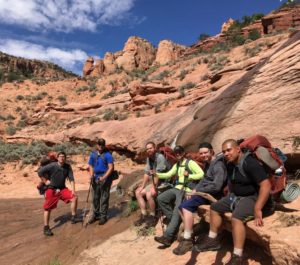We begin to not be able to tell the difference between what is our issue, and what is not ours. 
Compassion fatigue results in a mind-body effect, which can activate a chronic low-grade sympathetic nervous system (SNS) response, resulting in a number of problems such as poor digestive health, insomnia, low immunity, inflammation, serotonin imbalances, muscular tightness, respiratory tension, anxiety and depression.
When we are tired, we are more easily “triggered” in our work with others. We start to take things personally and make the client, or loved one, issue about us. We react, project, defend, judge, name call and transfer our frustrations with the individual onto them, ourselves and others. Of course, this is not helpful to clients, family members, business associates or ourselves.
Perhaps we who go into this work, or family members caring for loved ones, do so because we have a huge capacity for empathy. We can literally feel the pain others hold, so we want to help, because we care so deeply. As empaths, we are like sponges, we absorb.
Eventually, the sponge becomes saturated and we cannot hold anymore. We begin to not be able to tell the difference between what is our issue, and what is not ours. Our boundaries are blurred.
However, there are ways to maintain balance through self-care. It’s important to remain mindful of our own triggers, feelings, body and breath. Balancing the nervous system/adrenals can be aided through exercise, which releases tension and increases the feel-good hormones. Relaxation practices like yoga and meditation can be beneficial. And, adopting a habit of letting go and leaving the work at work can help maintain personal joy. Keep pleasurable activities in your life. Involve friends, play and have fun! FBN
By Keelyn Riley, LCSW, CYT, RYT
Keelyn Riley LCSW,CYT, RYT has worked in mental health since 1994 and has been a primary therapist and program contributor for the last eight years at Back2Basics Outdoor Adventure Recovery. She began teaching yoga in the late 90s as an addition to a focus in holistic health and coaches professionals on addressing the symptoms of burnout. She specializes in the treatment of addictions and somatic related disorders.
Back2Basics combines residential therapeutic counseling with experiential outdoor adventures to treat individuals with substance and alcohol addiction and lead them through rehab and recovery into long-term sober living for a positive meaningful life. The program (up to six months) is designed for young adult males, ages 18 to 30. Clients are exposed to a weekly combination of both wilderness adventures and residential programing. The program is highlighted by spending time in the beautiful serene wilderness where individuals are physically challenged, their minds are cleared and they learn ways to defeat old addictive thinking patterns through various outdoor adventures.
For more information about Back2Basics, visit Back2basicsoutdooradventures.com, call 928-814-2220 or email rduprez@b2badventures.com.





